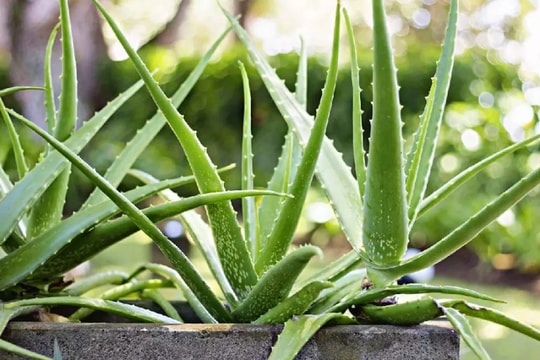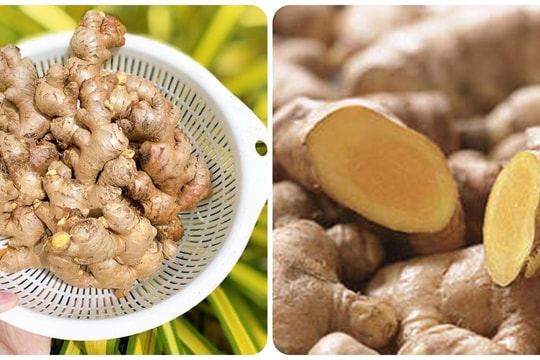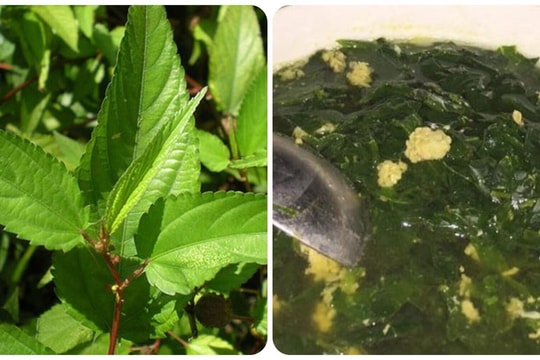The proliferation of counterfeit oriental medicine is a danger to people's health.
Currently, in many rural markets in Nghe An, the widespread sale of herbs, traditional Vietnamese and Chinese medicines wrapped in small plastic bags, accompanied by advertisements that “cure all diseases”, is quite common. However, few people realize that behind these packages of folk medicine is a potential risk of harm to health, when the origin, ingredients and effectiveness are completely unverified.
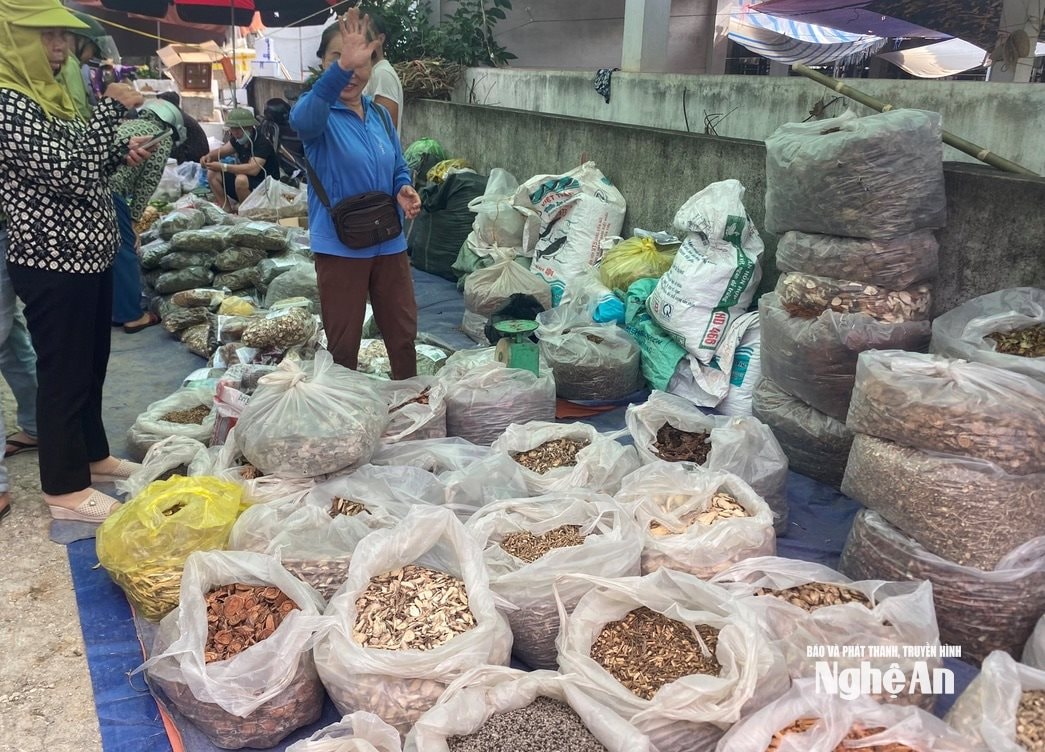
Widespread sale of oriental medicine and herbs of unknown origin
Having the opportunity to visit Dinh market in Yen Thanh commune, it is easy to see dozens of small traders selling all kinds of oriental medicine, traditional Vietnamese medicine, traditional Chinese medicine and herbs. According to a survey, there are currently more than 20 stalls selling these products in the market. Herbs, traditional Vietnamese medicine - traditional Chinese medicine are piled up in piles, without any labels, information about origin or expiry date, and are sold right in the middle of the market.
A shop owner specializing in selling traditional medicine said: "We import these medicines from the Northwestern mountainous provinces. They are very rare and of high quality. Buyers can rest assured when using them."
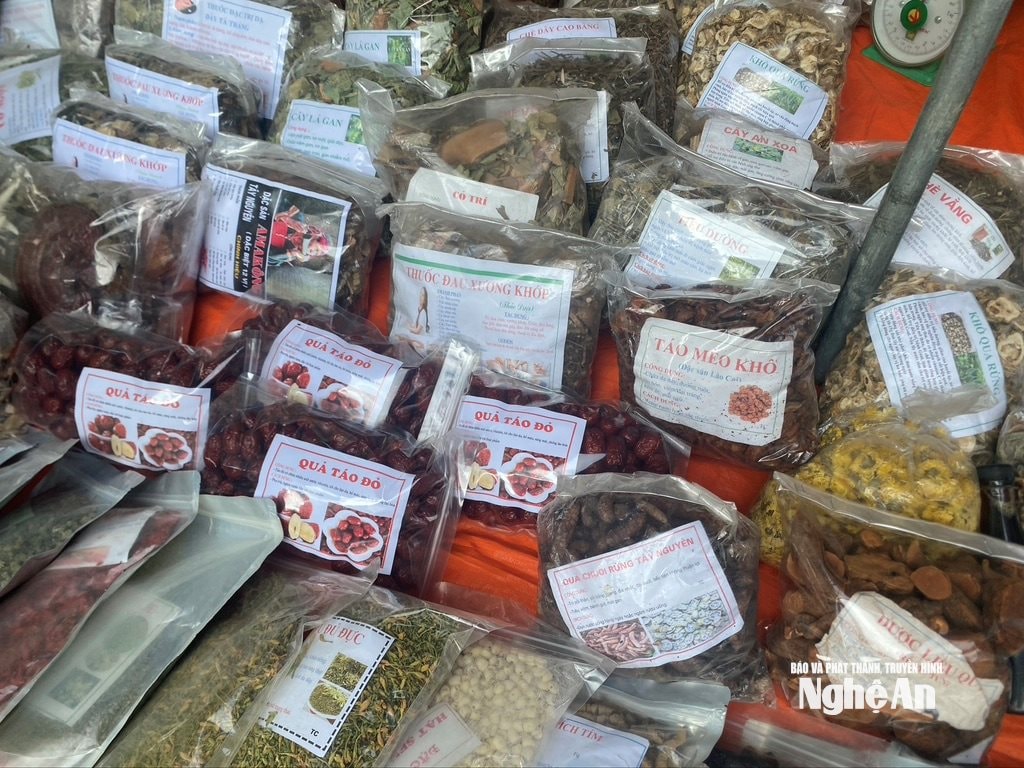
At any stall, sellers constantly advertise that herbs can “cure all diseases”: from liver, gout, vestibular disorders, sciatica, insomnia, erectile dysfunction, to burns, anorexia, headaches, joint pain, hemorrhoids, skin diseases, even kidney tonics, and increased vitality.
The drug trading activities are bustling and normal, like people buying vegetables or fish. The buyer only needs to list a few symptoms, the seller immediately chooses a “suitable” medicine package, instructs how to decoct it to drink or soak it in alcohol, completely without any medical verification.
Ms. Nguyen Thi Lien (Tay Ho hamlet, Yen Thanh commune) said: “I had bone and joint pain, so I went to Dinh market to buy traditional medicine after listening to people's advice. They sell it in plastic bags, saying that it will cure me after taking it for a month, the price is 500,000 to 700,000 VND per course, I heard that it is a traditional medicine.”
Not only in Yen Thanh commune, at Thanh Chuong Trade Center market in Dai Dong commune, there are also 4-5 stalls specializing in selling herbs. Here, sellers also introduce red ginseng tea, Cao Bang tea, according to the sellers, this type cures "kidney tonic, sedative, detoxification", all packaged in plastic bags, without inspection stamps. And there are also quite a few people who buy it to boil and drink.
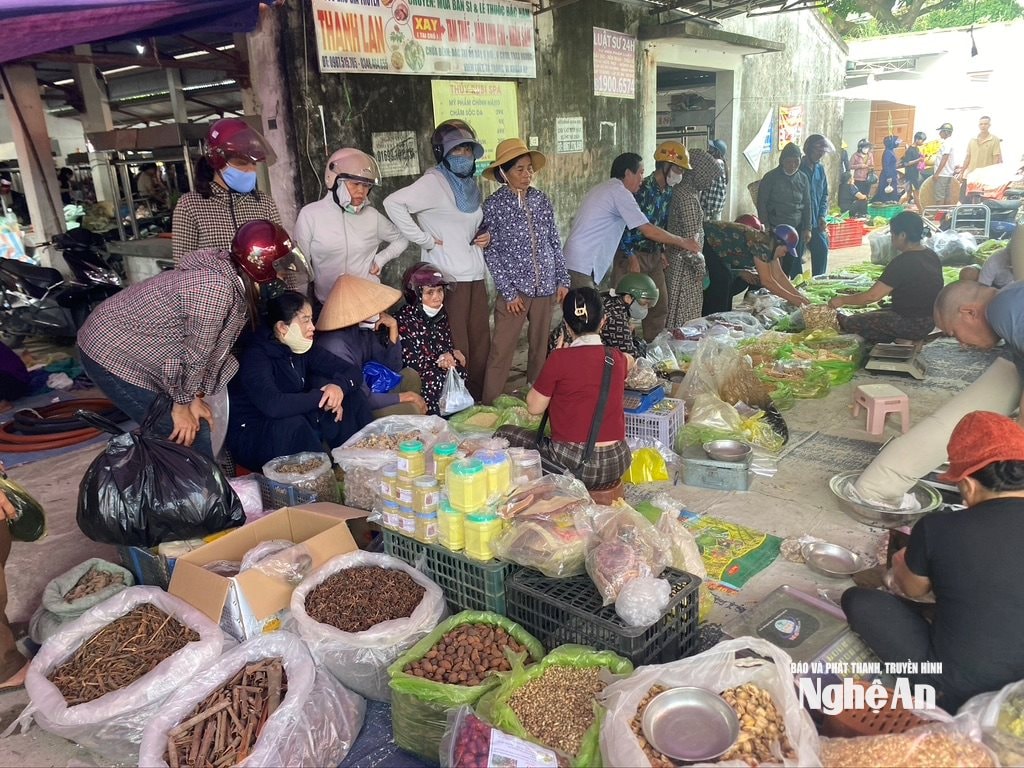
In addition, at mountain markets such as Dinh market (Tam Hop commune) or Con Cuong commune market, every market has people selling all kinds of tree roots and leaves exploited from the forest and homemade.
However, these products pose a serious risk of poisoning. Recently, in Son Lam commune (formerly Thanh Chuong district), 6 people were poisoned, suspected of drinking wine soaked with wild roots bought at the market and picked in the forest. Of these, 4 patients had to be intubated and put on ventilators.
Doctor Nguyen Trong Toan - Department of Poison Control, Nghe An General Hospital warned: "People should absolutely not arbitrarily use roots and barks of unknown origin to soak in wine. We have received many cases of severe poisoning, even death, due to drinking wine soaked in folk herbs. Many people believe that wine soaked in forest plants is a tonic, but in fact it can be poisonous."
Herbal medicine and oriental medicine need to be strictly controlled.
Medical experts say that the use of floating herbal medicines of unknown origin is a major threat to public health. “Many people mistakenly believe that herbal medicines are benign, but in reality, many herbs are soaked in anti-mold chemicals, contaminated with lead, or expired. When accumulated for a long time, they can damage the liver, kidneys, nervous system, and even lead to kidney failure and paralysis,” said Mr. Minh, a traditional medicine expert.
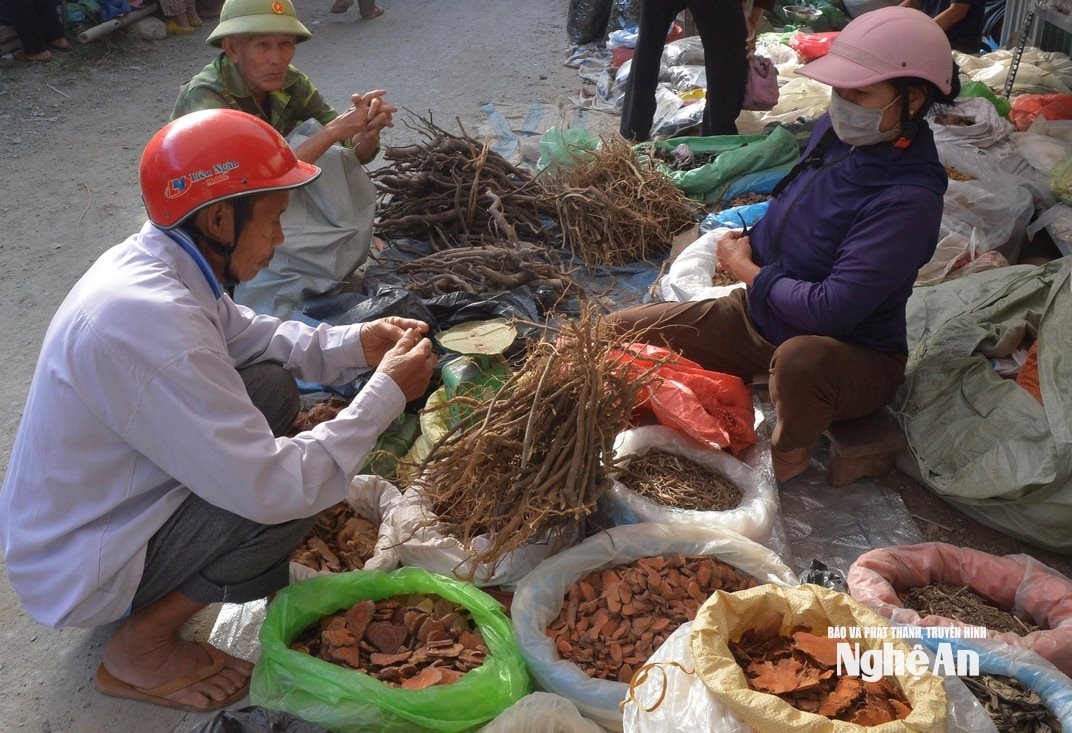
In fact, many patients after using “market” medicine not only did not get better but also fell into critical condition. However, due to the habit of buying and selling on a small scale without invoices and documents, tracing the origin is almost impossible.
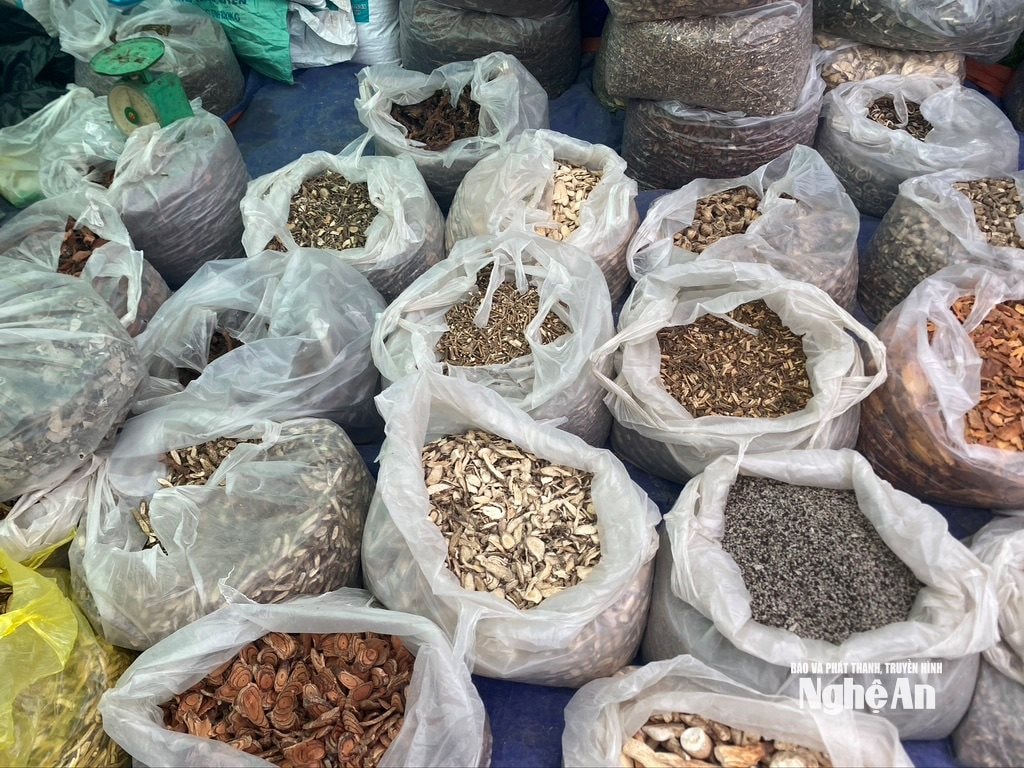
Medical experts confirm that there is currently no single herbal medicine that has been scientifically proven to completely cure chronic diseases such as liver, gout, bone and joint diseases or vestibular disorders. Some medicinal herbs can help enhance immunity and improve symptoms, but they absolutely cannot replace the treatment regimen of modern medicine.
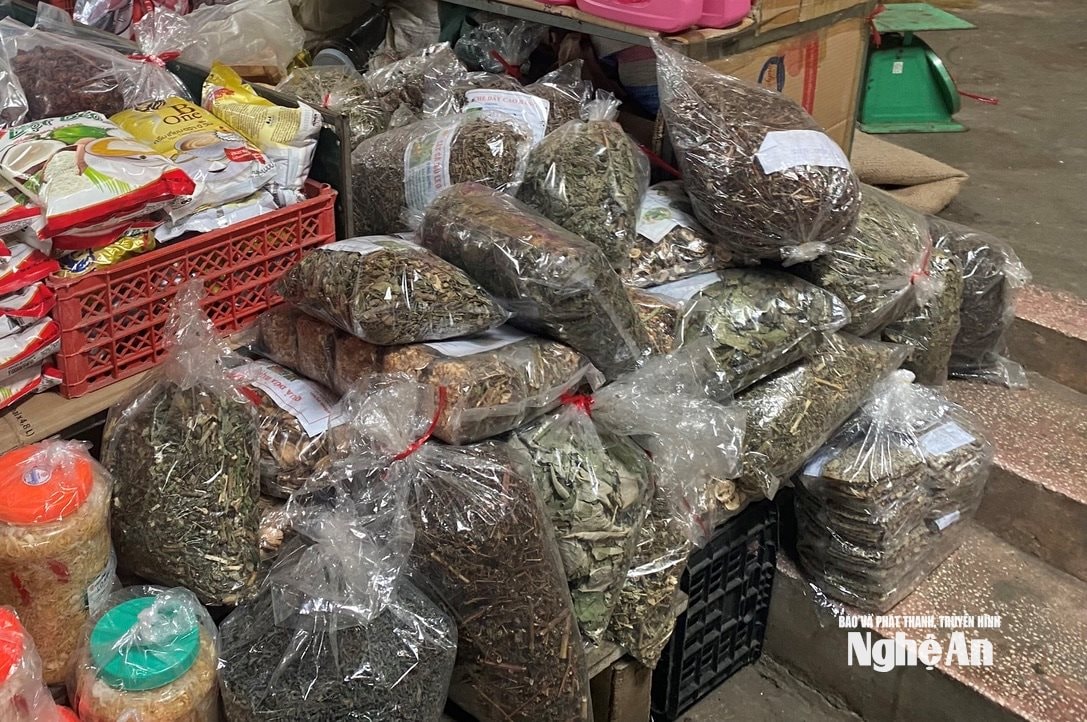
The uncontrolled sale and use of traditional medicine is posing a major challenge to public health protection in Nghe An. According to records, most of these "drug stores" are not registered to practice, do not have a business license, and have never been periodically inspected by the authorities. This is a violation of the law on medical and pharmaceutical practice management.
Mr. Tran Van Kien - Vice Chairman of Yen Thanh Commune People's Committee said: "We have repeatedly propagated and reminded traders not to sell drugs of unknown origin at Dinh market and other markets in the area. However, management is still difficult because they often move around, sell on the street, and do not have a fixed location."
Faced with this situation, the authorities need to strengthen inspection and strictly handle illegal medicinal herb trading establishments, and at the same time, step up propaganda to make people aware of the risks of using drugs of unknown origin. Health cannot be traded for vague trust in anonymous packages of medicine in the countryside market.

